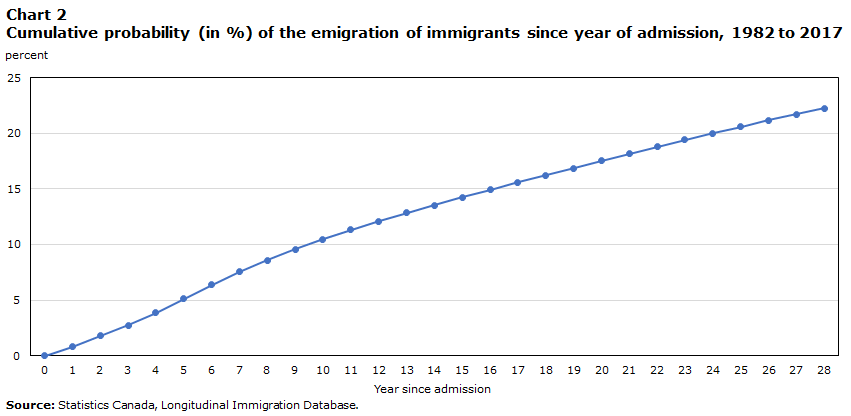A recent study conducted by Statistics Canada sheds light on the migration patterns of immigrants who arrived in Canada between 1982 and 2017. The findings reveal that more than 15% of these immigrants chose to leave the country within 20 years of their admission, prompting discussions on immigration policies and integration challenges.
The study underscores that the likelihood of immigrants leaving Canada is most pronounced within the initial years after admission. The probability peaks at around 1.4% during the fourth and fifth years, gradually decreasing to a range of 0.6% to 0.7% after 15 years.

Various factors contribute to the timing and reasons behind immigrant departures, with integration emerging as a key hypothesis. Julien Berard-Chagnon, a demographer at Statistics Canada, suggests that the three to seven-year period allows immigrants to adapt to Canadian society, find employment, secure housing, and acclimate to the Canadian climate.
RBC economist Claire Fan expresses surprise at the number of immigrants leaving the country, emphasizing the importance of addressing gaps in the labor force to enhance satisfaction and retention among newcomers. She notes that a more productive labor force and improved living conditions can positively influence immigrants’ decision to stay.
Data analysis reveals fluctuations in emigration trends based on the period of admission, with immigrants who arrived in the late 1980s and the first half of the 1990s exhibiting a higher likelihood of leaving within 20 years. Conversely, immigrants arriving since 2000 show a lower likelihood of emigration, with nearly 5% leaving within five years and 10% within a decade.
Daniel Bernhard, CEO of the Institute for Canadian Citizenship, sees the study as confirmation of their own “Leaky Bucket” study, highlighting a surge in immigrant departures in 2017 and 2019. He emphasizes that skilled individuals, including investors, entrepreneurs, and skilled workers, are more likely to emigrate within two decades, highlighting the need for a positive early experience to encourage immigrant retention.
Bernhard points out the significance of addressing integration challenges and stresses the importance of creating a positive environment for immigrants to encourage them to stay. Fan acknowledges issues such as housing and integration and underscores the necessity of not only bringing immigrants into the country but also ensuring their effective integration into the labor force and society.



